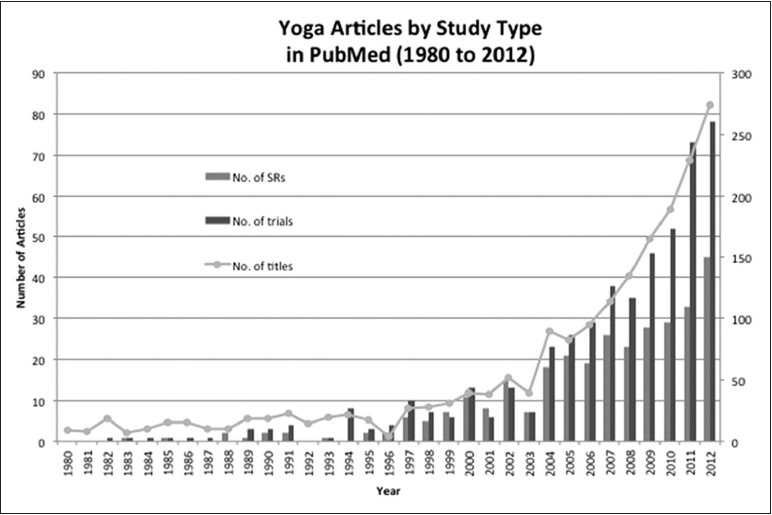Have you ever thought of yoga for stress management? This is a common question that I get asked in practice.
I thought I should address how yoga can be quite a ‘miracle treatment’ when it comes to managing stress and anxiety.
Rising Popularity Of Yoga
Up until a few years ago, yoga was overlooked as a way to keep both the mind and body sharp and in good health.
Fortunately, that view has changed in the recent past.
We now know that yoga has a number of health benefits. Even the number of clinical studies that are being conducted has increased.

But here, I will talk mostly about how yoga helps with stress management.
Defining Stress
Stress has been defined as the ‘inability to cope with a real or imagined threat to one’s physical, mental or social well being that results in a series of physiological responses and adaptations‘.

In other words, suffering from stress can have a negative impact on your health.
In fact, stress has been linked not only to heart disease but also to an increased risk of cancer and chronic pain.
Prolonged stress leads to physical and mental exhaustion. This can eventually reach extreme proportions, increasing the risk of other health problems.
In one particular study, it was found that in at least 8 out of 10 cases stress resulted in heart disease, high blood pressure, migraine headaches and difficulty sleeping (insomnia).
Given this scenario, it is essential that steps are taken to manage this. And yes, using yoga for stress management is essential.
Yoga For Stress Management
The word ‘yoga’ means union. It has been around for centuries, with the Indus Valley civilization being the pioneers of it in South Asia.
In fact, the first written records about yoga and its methodologies originate back in 200 BC in the Yogasutra of Patanjali. The system was composed of an 8-fold path called ‘Asthanayoga’.
It consists of 8 basic principles that are listed in the box below.
1. Yama – Rules for living in society
2. Niyama – Self-restraining rules
3. Asana – Low physical impact postures
4. Pranayama – Breathing techniques
5. Pratihara – Detachment of the mind from senses
6. Dharana – Concentration
7. Dhyana – Meditation
8. Samadhi – Complete union with super consciousness
What was previously a rigorous, lifelong process has now changed completely.
Currently, the concept of yoga is centered around ‘harmony’. It revolves around keeping a balance between mind and body.
 Most researchers that have looked as yoga as a way to relieve stress have looked mostly at Hatha yoga.
Most researchers that have looked as yoga as a way to relieve stress have looked mostly at Hatha yoga.
This is because Hatha yoga involves breathing exercises and helps remove external influences that are causing stress. It concentrates on removing ’emotional toxins’ that may be the root cause of stress.
The American Council of Yoga conducted research that found that regular Hatha yoga can increase strength, enhance flexibility and improve balance to the extent of 35%.
This is very significant in the grand scheme of things.
Not just that; people who perform yoga everyday find that they sleep a lot better as well.
And we all know how important a good night’s sleep is to keep us healthy.
It Doesn’t Matter How Old You Are
It does not matter how old you are. It is never too late or even too early to take up yoga.
You don’t even need to be under stress to take it up. Just go ahead.
With the benefits that it brings, you are missing out if you don’t participate in it.
In one study looking at MBBS students, yoga was found to remarkably reduce stress levels.
Another study looking at middle aged women, regular and long term practice of Hatha yoga was found to reduce perceived stress levels and improve low mood significantly.
Similarly, a 3 month program of intensified Iyengar Hatha yoga was found to reduce stress levels in distressed women.
Stress is notorious in leading to depression, especially if it lasts for prolonged periods of time. The onset of depression can be a few months or even years after stress begins.
Regular yoga has been shown time and again to help conquer depression. This is because it helps establish a calm, improves and clears up thinking and gives you a feeling of well being and peace.
So How Does Yoga Really Reduce Stress?
There are a number of different complex mechanisms explained in literature. Reading through it made my mind spin.
I thought I would perform my favourite asana – the Shavasana – before continuing this article.
…….and…..
I’m back!
Right, so yoga can affect something called the Hypothalamic-Pituitary-Adrenal axis in the body.
Long term I know, so let’s just call it HPA axis for now, okay?
This axis is responsible for the release of hormones, many of which are responsible for the way we react to situations.
Stress seems to affect the HPA axis, making it work all funny and unpredictably.
The effect it has can be measured by the levels of a chemical called cortisol in the saliva. Higher levels indicate the axis is under strain.
Yoga has been found to reduce the levels of cortisol.
This means it has some control over the HPA axis.
So this is just one theory.
The blood vessels in our body are lined by a single layer of cells called endothelial cells. These are magical cells.
Why?
When under stress, they release a chemical nitric oxide (not laughing gas – that is nitrous oxide), which allows the blood vessels to relax.
In fact, if you have good endothelial cells, you will have a health heart and mind.
The constant stretches, bending, breathing etc. that is performed in yoga stimulates these cells to release nitric oxide.
This can keep the heart and blood vessels healthy.
Yoga can also control the heart rate and this can allow more time for the heart to get the nourishment it needs.
How Does Yoga Compare?
How does yoga compare to other methods of stress management?
It depends, and having looked at all the research papers, I don’t really think there is much in terms of comparing it with other methods of stress relief.
For example, some people manage their stress by going for a run. Some play sport. Some like to go to a coffee shop and have a coffee all alone.
I guess what is more important is not just the stress treatment benefits. It is what yoga has to offer well beyond that, especially in terms of what it can do for your health overall.
It is your choice if you wish to use yoga for stress management. It might even be worthwhile adding it on to what you are already doing to handle your stress.
Closing Remarks
Yoga has numerous health benefits. If you are under pressure, then make sure you use yoga for stress management.
It will not only help take control of the stress, it will hopefully clear your mind and get you out of your stressful situation!
PS: I have not gone into any detail about what yoga poses are good for stress management. Please do contact a certified yoga instructor for that information.
- CT Coronary Calcium Score: A Guide for Patients - January 7, 2024
- Gastric Antral Vascular Ectasia (GAVE) – Causes, Diagnosis, and Treatment - August 5, 2023
- Understanding Xanthelasma: Causes, Symptoms, and Treatment Options - June 28, 2023


Very good article.